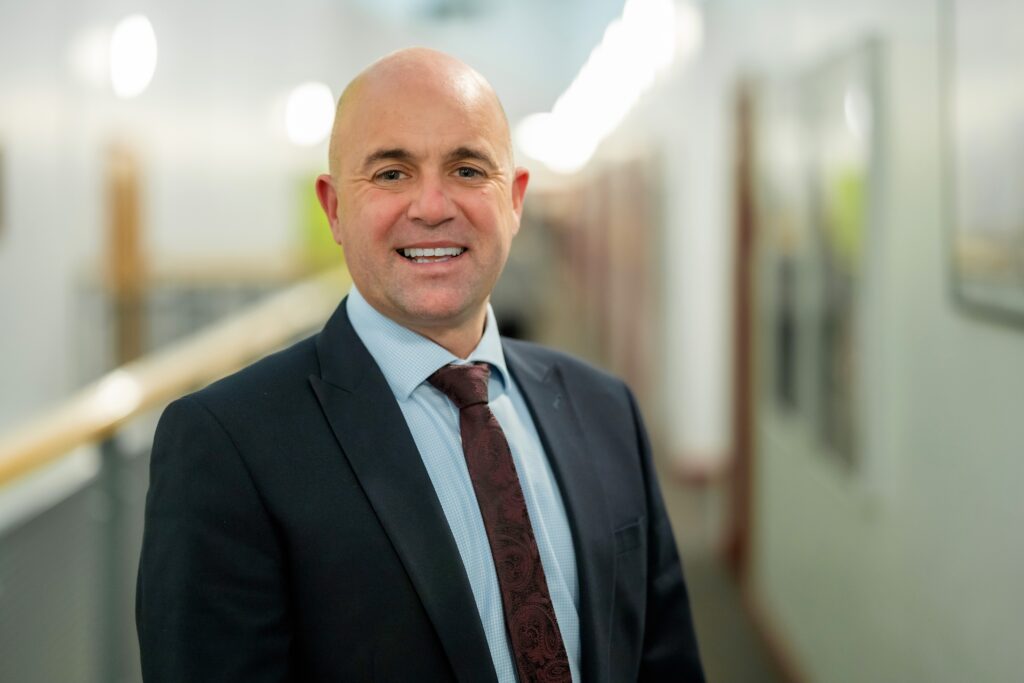
Lancaster and Morecambe College has transformed its engineering provision thanks to IoT investment – with learners now using cutting-edge equipment to prepare them for the industry.
The College used its cash to install a new state-of-the art CAD suite for students on its Level 4 engineering HNC, a course developed in collaboration with EDF Energy.
The partnership with the major local employer, which employs more than 1,400 staff across two power plant sites in Heysham, ensures the course meets both the needs of learners and the industry.
The College, which will also offer a Level 3 T-Level in Engineering from September 2024, worked closely with the company to ensure the course – part of the Lancashire and Cumbria Institute of Technology offer – was fit for purpose.
Danny Braithwaite, Principal at Lancaster and Morecambe College, explained: “We co-created the course to give staff seeking a promotion the opportunity to gain a Level 4 qualification.
“The Level 4 Engineering HNC covers both power stations – but with unique classes to meet the needs of each site.”
The extended certificate in Engineering (Nuclear) is delivered by the college in partnership with the National College for Nuclear (NCfN). It has the potential to open doors to many exciting careers within the sector such as Radiation Protection Technician, Project Control Engineer and Aerospace Engineer.
Danny said: “The HNC in engineering is plugging a gap. You get the practical hands-on experience of an apprenticeship, but also the higher-level technical qualification.”
The CAD suite has raised the profile of the course, and the college, from a student perspective. The investment in equipment also means students are working on high quality, industry standard machines and software.
Danny added: “The level of investment and opportunity through the IoT has enabled us to raise the bar further so we could develop the course and purchase the high spec CAD suite to deliver the course.
“Using outdated software and hardware is not an acceptable standard for students, and teaching staff. Now we have more confidence when speaking to employers. The right equipment creates a different conversation and experience for students, tutors and employers – who want to emulate the standard of technology in the workplace.”
“When you have employers like EDF, a prestigious major employer in the area and a key stakeholder, at the table word spreads. The College has to ensure the value aligns to the standards they expect.
“We want to attract more employers – those who want to upskill and reskill staff, and offer more opportunities for their existing and future workforce to be at the forefront of innovation.
“The IoT allows us to be part of that conversation.”
Work has gone into assisting businesses with accessing the skills they need. “We can help employers navigate the education landscape to help them deliver the output they require,” he said. “If it’s complicated for us to navigate the jargon used in education, what is it like for employers who don’t use the same language as us on a day-to-day basis?
“It’s up to us to be able to distil and articulate what the various levels and courses mean to our existing and potential customers – students, their parents, and employers. We need to make it as clear and concise for people as we can.”
The Level 4 Engineering HNC course enrols cohorts of between 12 and 15 each January and September and provides a remote course to meet the needs of employees on shift patterns at Heysham 1 and 2.
The new CAD suite is used daily for both the part-time (two year) and full-time (one year) students, which range from employees in their mid 20s to late 40s.
Speaking about the Lancashire and Cumbria IoT, Danny said: “Organisations like colleges must work together. They must work in collaboration. Working in synergy with one another can develop additional resources and you can learn from each other.
“The capital investment in equipment is priceless for organisations like LMC. We need to continually raise the standards and quality of resources in the college – especially relating to our Higher Education offer.
“Technology has become a key component, and expectation, of the student offer. Working as a collective with a consortium approach has a positive impact.
“In our area, it’s a competitive landscape. The IoT offers a positive brand. A different level of education. It’s a different status. We need to make it clear what sets us apart and what brings us together as a collective.”